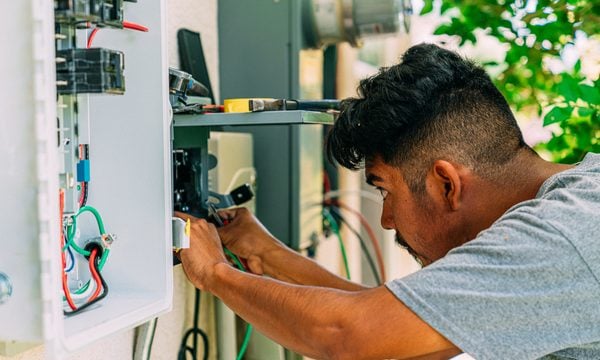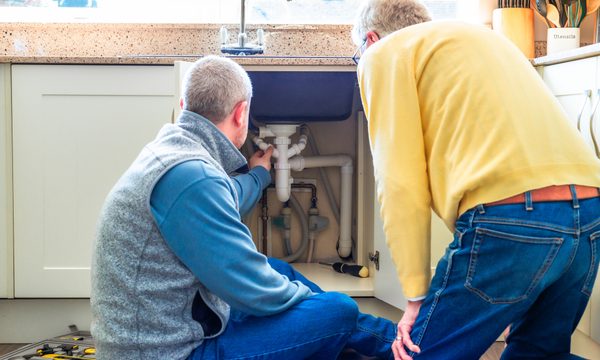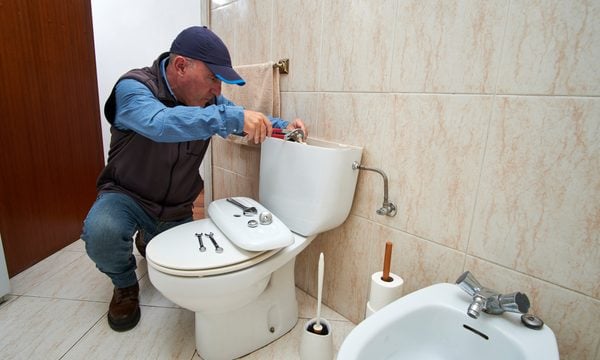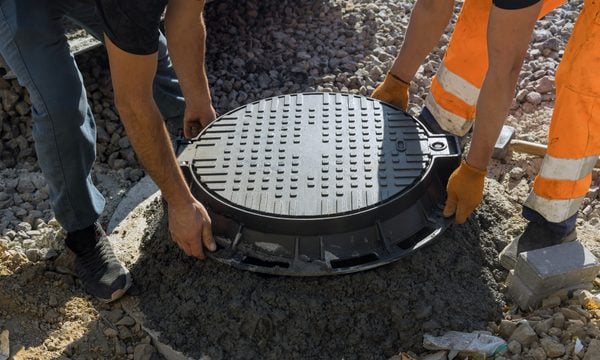Water Heater Cost in 2026: DIY or Professional Installation?
Professional labor costs for installation make up over half of the total cost of a new water heater, but there are a few ways to save.
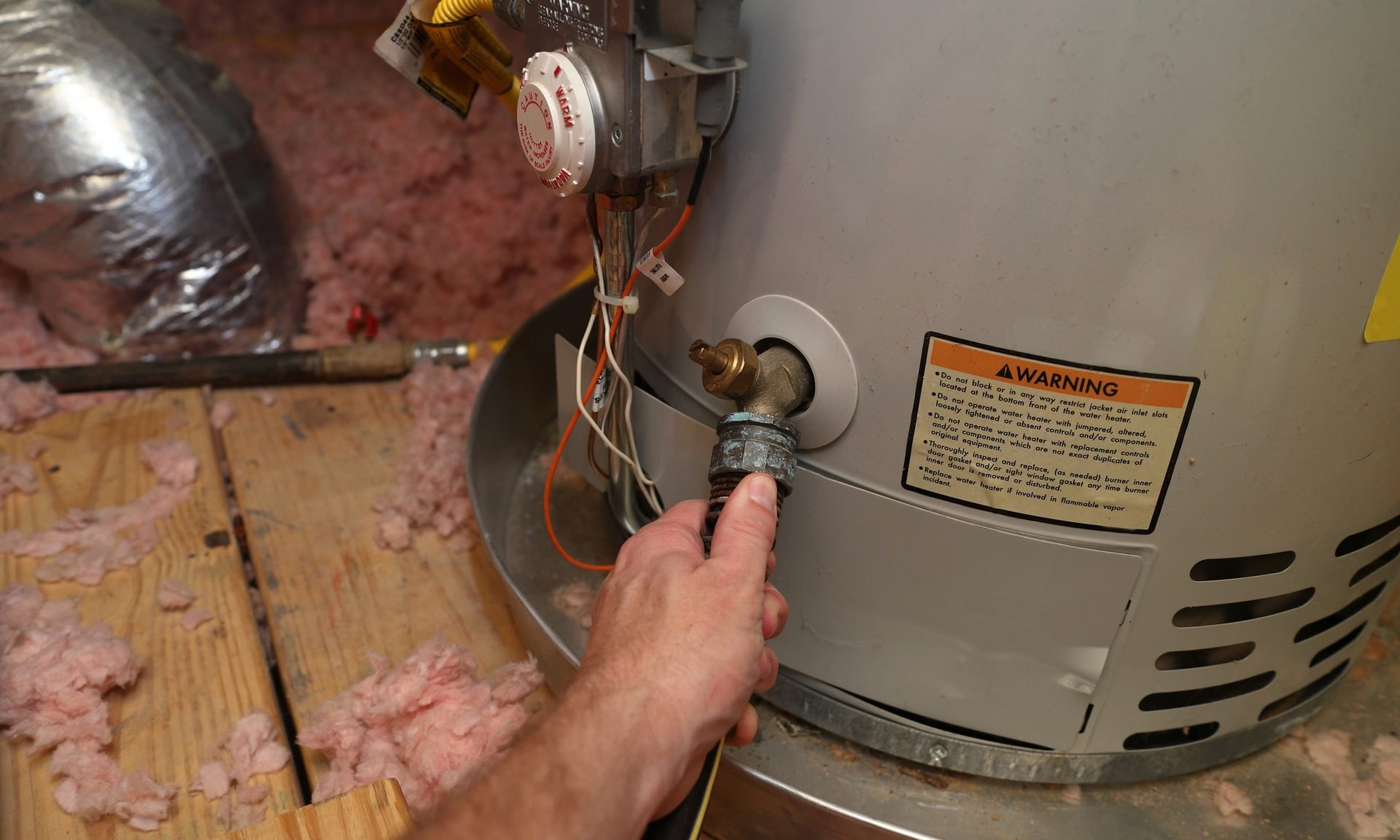
Some or all of the mortgage lenders featured on our site are advertising partners of NerdWallet, but this does not influence our evaluations, lender star ratings or the order in which lenders are listed on the page. Our opinions are our own. Here is a list of our partners.
A new water heater typically costs $600 to $2,500 for a traditional tank and between $1,400 and $3,900 for a tankless water heater, including installation. Professional labor costs for installation make up over half of the total cost of a new water heater.
In general, tankless water heaters are more expensive to install than storage tank models, particularly if you’re replacing a tank model with a tankless one because of the additional labor needed.
You can save a significant portion of the total project cost with DIY installation, but you could end up paying the price by voiding the warranty, violating plumbing codes or facing costly issues like leaks down the road.
Water heater costs: tank vs. tankless
Traditional tank-style water heater costs
Replacing a tank-style hot water heater usually costs between $600 and $2,500.
A conventional tank-style water heater heats water electrically and stores the heated water in an insulated tank until it’s needed. These units come in a variety of sizes, last around 10 to 15 years and are the least expensive type of water heater .
A number of features affect the price of a tank-style water heater, including:
- The size of your water heater. The more gallons of water your hot water tank can hold, the more the unit will generally cost.
- Fuel type. Electric, propane and natural gas water heaters have similar starting price points, but if you need to install a gas line or alter your electric system, this can raise your costs. High-end electric, solar and hybrid heat pump units tend to be the priciest.
- Water heater brand and features. Some brands, such as Rheem or A.O. Smith, tend to be more expensive than brands like Whirlpool or Kenmore. Additionally, high-end features such as anti-scale mechanisms, smart controls and energy-saving tech may increase your total price.
- Venting system. A direct-vent model that uses an already-existing chimney is generally significantly less expensive than installing a power-vent unit.
Water heater cost by tank size
To choose a sufficient water heater tank size, consider the number and age of household members, how often you wash dishes and clothes and how many bathrooms you have.
| Hot water heater size (gallons) | Average unit cost (not including installation) | Best for these households |
|---|---|---|
| 30 | $430-$2,100. | 1-2 people; low to regular water use. |
| 40 | $440-$2,300. |
|
| 50 | $530-$2,900. |
|
| 75-80 | $1,100-$3,100. | 3-5+ people; very high water use. |
| Sources: CenterPoint Energy, Lowe’s, Home Depot. Home Depot lists its average total cost for tank water heater installation as $1,950 and tankless water heater installation as $4,300. | ||
Traditional water heater warranty
Manufacturer warranties for storage tank water heaters vary from company to company, so it’s important to read the warranty of any water heater you’re considering. These warranties often last six years, but some may continue up to 12 years.
Covered areas may include the inner tank, component parts, return of defective parts and also labor — as long as there is no misuse, improper installation, tampering or damage from flooding or other extreme conditions. Different covered areas within the same warranty may have longer or shorter coverage periods.
Tankless water heater costs
Tankless water heater costs range from about $1,400 to $3,900, including installation.
Tankless water heaters deliver a constant, on-demand supply of hot water without the need for a storage tank. These water heaters accomplish this through flashes of intense heat against water-filled coils.
Tankless water heaters are much smaller and have a longer lifespan (about 20 years) than storage tank models — and they also have the potential to use less energy, depending on the individual household’s water usage behaviors.
Some factors that affect the price of tankless water heaters include:
- Special features. Energy-efficient certification and high-end features usually add to the cost.
- Fuel type. Gas-powered units generally cost significantly more than electric-powered units .
- Warranty length. A longer warranty may factor into the price.
- System size. The higher the gallons-per-minute rating, the more the unit typically costs.
Tankless water heater warranty
Tankless water heater warranties can extend as long as 25 years or even a limited lifetime period, but some manufacturers offer significantly shorter coverage periods. Be aware that different parts of your warranty coverage may have different coverage periods. As long as you’ve properly cared for your unit, areas covered by tankless water heater warranties may include:
- The heat exchanger.
- Other replacement parts.
- Labor to diagnose problems and to repair or replace parts.
Because warranties can vary so much in coverage and duration, it makes sense to read the fine print on manufacturer warranties carefully before making a purchase.
Professional installation costs to replace a water heater
The more hours of electrical, carpentry and plumbing work that are required for your installation (for example, installing new electric, water or gas lines or drywall), the higher your total water heater replacement cost. Relocating your water heater also adds to the complexity and cost of installation.
Here are some estimated labor cost price ranges for a water heater replacement:
- Tank-style water heater: $150 to $450.
- Tankless water heater: $600 to $1,900.
- Switching from tank-style to tankless: $150 to $2,500.
Here are a few factors that can add to your total labor costs:
- Location of unit. If your water heater needs to be installed in a spot that’s hard to access, such as in a very tight space or up or down flights of stairs, this can add to the cost.
- Permits. The cost of required permits will add to your total installation expense, typically from $25 to $300.
- Geographic area. Some areas of the country have higher average installation costs for water heaters.
DIY or professional installation?
It’s possible to install a water heater yourself, and it can be tempting to do so, since labor often costs as much as the water heater itself. However, it’s generally not recommended to DIY a water heater installation for the following reasons:
- Seismic mitigation strapping. If water heaters aren’t properly secured and an earthquake happens, this can cause broken gas lines, fires, broken water lines and flooding .
- Plumbing codes. DIY installs may not take plumbing codes into consideration, resulting in code violations and possible fines, water heater leaks or safety issues.
- Permits. Your town or city may require a permit for water heater installation, as well as secondary plumbing or electrical permits. Neglecting this could result in code violations, possible fines or safety issues.
- Voiding of warranty. DIY or improper installation could void your warranty.
- Improper location. Installing your water heater in a difficult-to-reach spot can make contractors reluctant or unwilling to service it if you have problems over the years. Additionally, certain locations are code violations due to possible CO emissions. Areas where water heaters are prohibited include storage closets, toilet rooms, bathrooms and bedrooms.
What Reddit users say about water heater replacement
Reddit is an online forum where users share their thoughts in “threads” on various topics. The popular site includes plenty of discussion on financial subjects like home improvement, so we sifted through Reddit forums to get a pulse check on how users feel about water heater replacement costs. People post anonymously, so we cannot confirm their individual experiences or circumstances.
Reddit users recommend replacing your water heater before it fails to reduce the risk of potential water damage. Reddit users also recommend hybrid heat pump water heaters, which typically cost more upfront but use less electricity than standard electric heaters. Hybrid heat pump water heaters may also qualify you for certain tax credits in 2025. The credits will no longer be available after 2025.
Frequently Asked Questions
Are there any alternatives to hot water heaters?
If your home uses a boiler for heat, you may be able to find a furnace/tankless water heating combo unit that does double duty heating your home and providing hot water on demand.
How long does a new water heater last?
Properly maintained tank water heaters function for about 10 to 15 years. A tankless model can last up to 20 years or longer. Factors that affect life expectancy include water quality, installation quality, maintenance and brand of water heater.
What is a hybrid water heater?
A hybrid hot water heater, also known as a heat pump water heater, combines a traditional electric heating element with a heat pump that draws warmth from the surrounding air to heat water. This design is on the high end of the cost range, but it's a more energy-efficient, cost-effective and eco-friendly option.
Article sources
NerdWallet writers are subject matter authorities who use primary,
trustworthy sources to inform their work, including peer-reviewed
studies, government websites, academic research and interviews with
industry experts. All content is fact-checked for accuracy, timeliness
and relevance. You can learn more about NerdWallet's high
standards for journalism by reading our
editorial guidelines.
- 1. NYSERDA.NY.Gov. Water Heaters. Accessed Sep 15, 2025.
- 2. EnergySage.com. Is a tankless hot water heater worth it for you?. Accessed Sep 15, 2025.
- 3. Mitigation.EERI.org. Guidelines for Earthquake Bracing Residential Water Heaters. Accessed Sep 15, 2025.
More like this
Related articles




